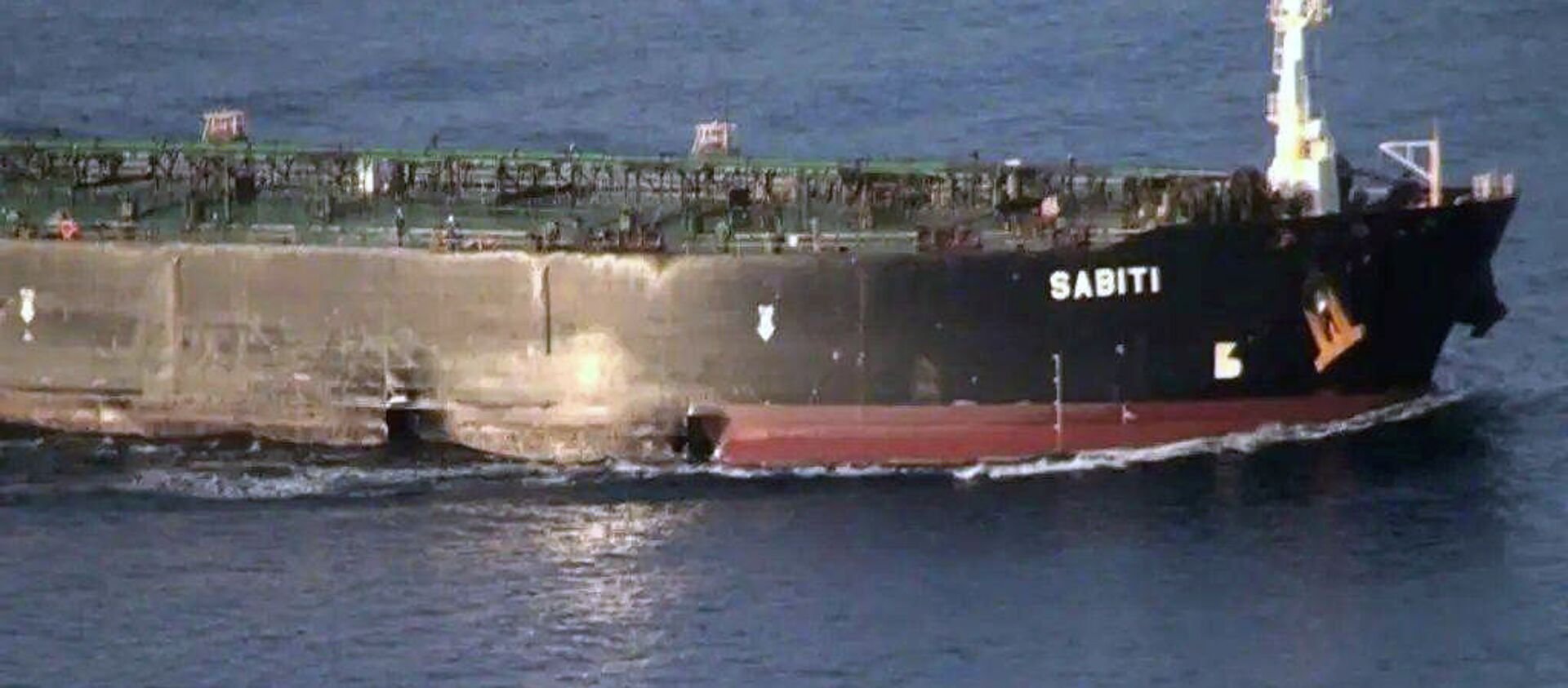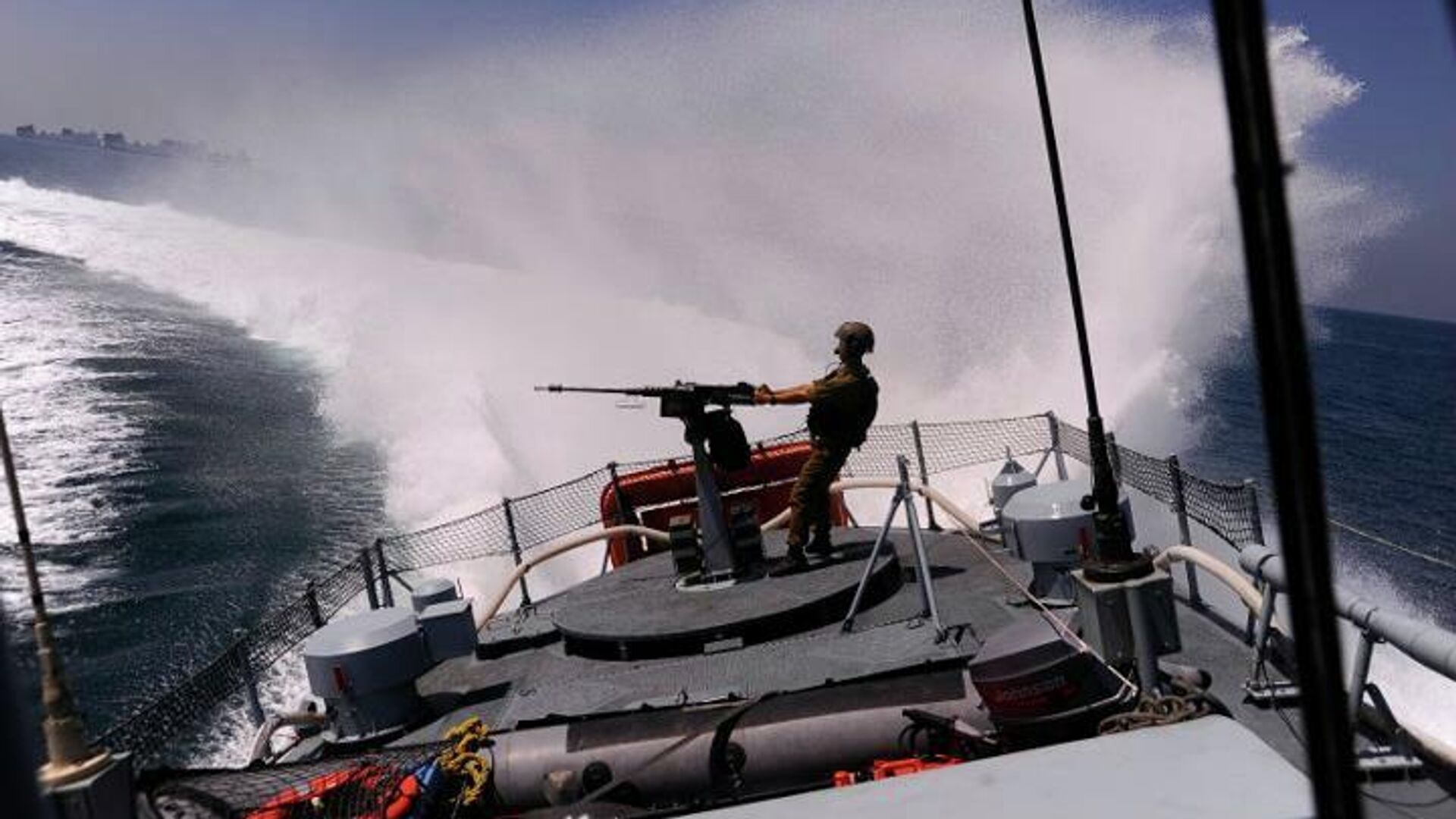https://sputnikglobe.com/20210917/tel-aviv-significantly-expanding-red-sea-presence-amid-alleged-iran-threat-ex-israeli-navy-chief-1089164577.html
Tel Aviv ‘Significantly’ Expanding Red Sea Presence Amid Alleged Iran Threat: Ex-Israeli Navy Chief
Tel Aviv ‘Significantly’ Expanding Red Sea Presence Amid Alleged Iran Threat: Ex-Israeli Navy Chief
Sputnik International
Iran and Israel have no diplomatic relations, with Tehran refusing to recognise the Jewish state and Tel Aviv pledging to do its best to keep the Islamic... 17.09.2021, Sputnik International
2021-09-17T16:00+0000
2021-09-17T16:00+0000
2021-09-17T16:00+0000
military presence
middle east
israel
iran
news
threat
red sea
https://cdn1.img.sputnikglobe.com/img/07e5/09/11/1089162453_0:67:721:472_1920x0_80_0_0_1da039e3728ab9c97ecd21b130f3d286.jpg
Vice Admiral Eli Sharvit, a former Israeli Navy commander, said that the Jewish state’s naval forces had considerably increased their presence in the Red Sea amid Iran’s alleged growing threats to Israeli shipping.In an interview with the AP news agency on Thursday, Sharvit dubbed the purported Iranian activities in the area as a top Israeli concern, arguing that the Jewish state’s Navy is capable of striking wherever necessary to protect the country’s economic and security interests.The vice admiral pledged that “the state of Israel will protect its freedom of navigation across the globe”, something that he said is “not related to distance from the country”.He warned that “if there were an attack on Israeli shipping lanes or Israeli freedom of navigation, Israel would have to respond”, he said.MV Savis Incident The interview comes after an Iranian cargo ship, the Saviz, was attacked in April in the Red Sea by a missile or a mine, with Israel allegedly notifying the US that its forces had carried out the strike as "retaliation for earlier Iranian strikes on Israeli vessels", according to The New York Times. The Iranian Foreign Ministry at the time confirmed that the MV Saviz had been targeted in the Red Sea.In November 2019, Tehran claimed that Iranian tankers had been targeted in the Red Sea three times in a six-month period, warning the international community that the shipping route was "unsafe".Iran-Israel StandoffRelations between Iran and Israel have been non-existent since the Iranian Revolution in 1979. Tel Aviv, among other accusations, points the finger at Tehran, who, Israel claims, is providing weapons to Damascus as a means of attacking the Jewish state. Iran denies having a military presence in the Arab Republic apart from advisers sent in at the request of Damascus to help the Syrian government fight terrorist groups.Tehran rejects Israel's right to exist, frequently vowing to destroy it, while Tel Aviv, apart from accusing Iran of supplying arms to Damascus, has repeatedly pledged to stop the Islamic Republic from obtaining a nuclear weapon. The Iranian government insists that its nuclear programme is for peaceful purposes only.
https://sputnikglobe.com/20191021/iran-submits-details-of-attack-on-tanker-in-red-sea-to-un-security-council-1077104610.html
israel
iran
red sea
Sputnik International
feedback@sputniknews.com
+74956456601
MIA „Rossiya Segodnya“
2021
Oleg Burunov
https://cdn1.img.sputnikglobe.com/img/07e4/09/0b/1080424846_0:0:2048:2048_100x100_80_0_0_3d7b461f8a98586fa3fe739930816aea.jpg
Oleg Burunov
https://cdn1.img.sputnikglobe.com/img/07e4/09/0b/1080424846_0:0:2048:2048_100x100_80_0_0_3d7b461f8a98586fa3fe739930816aea.jpg
News
en_EN
Sputnik International
feedback@sputniknews.com
+74956456601
MIA „Rossiya Segodnya“
Sputnik International
feedback@sputniknews.com
+74956456601
MIA „Rossiya Segodnya“
Oleg Burunov
https://cdn1.img.sputnikglobe.com/img/07e4/09/0b/1080424846_0:0:2048:2048_100x100_80_0_0_3d7b461f8a98586fa3fe739930816aea.jpg
military presence, middle east, israel, iran, news, threat, red sea
military presence, middle east, israel, iran, news, threat, red sea
Tel Aviv ‘Significantly’ Expanding Red Sea Presence Amid Alleged Iran Threat: Ex-Israeli Navy Chief
Iran and Israel have no diplomatic relations, with Tehran refusing to recognise the Jewish state and Tel Aviv pledging to do its best to keep the Islamic Republic from obtaining a nuclear weapon, among other bilateral barbs.
Vice Admiral Eli Sharvit, a former Israeli Navy commander, said that the Jewish state’s naval forces had considerably increased their
presence in the Red Sea amid Iran’s alleged growing threats to Israeli shipping.
In an interview with the AP news agency on Thursday, Sharvit dubbed the purported Iranian activities in the area as a top Israeli concern, arguing that the Jewish state’s Navy is capable of striking wherever necessary to protect the country’s economic and security interests.

21 October 2019, 08:27 GMT
The vice admiral pledged that “the state of Israel will protect its freedom of navigation across the globe”, something that he said is “not related to distance from the country”.
“We have increased our presence in the Red Sea most significantly. We are operating there continuously with main ships, that is to say missile frigates and submarines. What in the past was for relatively short periods of time is now done continuously”, Sharvit said.
He warned that “if there were an attack on Israeli shipping lanes or Israeli freedom of navigation, Israel would have to respond”, he said.
The interview comes after an Iranian cargo ship, the Saviz, was attacked in April in the Red Sea by a missile or a mine, with Israel allegedly notifying the US that its forces had carried out the strike as "retaliation for earlier Iranian strikes on Israeli vessels", according to The New York Times. The Iranian Foreign Ministry at the time confirmed that the MV Saviz had been targeted in the Red Sea.
Tehran previously described the MV Saviz as a vessel that was engaged in aiding “anti-piracy'' efforts in the Red Sea and the international shipping route through the Bab el-Mandeb Strait.
In November 2019, Tehran claimed that Iranian tankers had been targeted in the Red Sea three times in a six-month period, warning the international community that the shipping route was "unsafe".
Relations between Iran and Israel have been non-existent since the Iranian Revolution in 1979. Tel Aviv, among other accusations, points the finger at Tehran, who, Israel claims, is providing weapons to Damascus as a means of attacking the Jewish state. Iran denies having a military presence in the Arab Republic apart from advisers sent in at the request of Damascus to help the Syrian government fight terrorist groups.
Tehran rejects Israel's right to exist, frequently vowing to destroy it, while Tel Aviv, apart from accusing Iran of supplying arms to Damascus, has repeatedly pledged to stop the Islamic Republic from obtaining a nuclear weapon. The Iranian government insists that
its nuclear programme is for peaceful purposes only.



